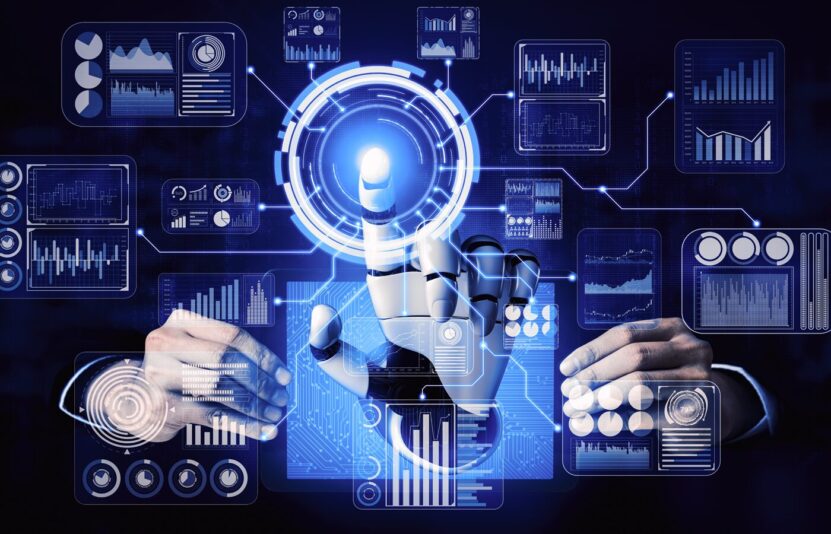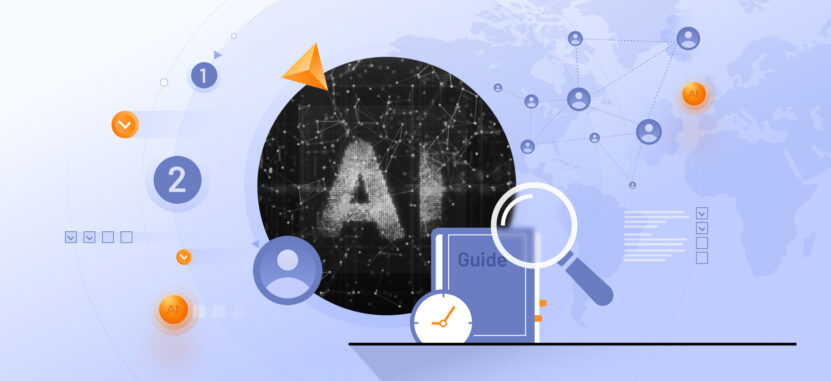Artificial Intelligence (AI) is revolutionizing industries worldwide, with its tools driving significant economic impacts and transformation.
Beyond the well-known giants, there are “hidden gems” in AI—lesser-known but highly impactful tools reshaping various sectors.
Predictive Analytics Platforms

Predictive analytics is essential for transforming raw data into actionable insights, helping industries anticipate future trends and behaviors.
One such hidden gem is RapidMiner, a user-friendly data science platform that simplifies predictive modeling and data analysis.
Another powerful tool is the IBM SPSS Modeler, which utilizes advanced algorithms for market trend analysis and demand forecasting. SAS Predictive Analytics offers robust statistical modeling and forecasting capabilities.
These tools are making waves across the finance, retail, and healthcare sectors. In finance, they help in risk assessment and fraud detection, while in retail, they forecast consumer demand and optimize inventory management.
Healthcare benefits from predictive analytics through improved patient outcomes and efficient resource management.
As predictive analytics evolves, we can expect more sophisticated tools that provide deeper insights and facilitate better decision-making processes.
This future outlook includes integrating predictive analytics with other AI technologies, leading to more comprehensive and accurate forecasts.
Natural Language Processing (NLP) Solutions

Natural Language Processing (NLP) is crucial for enabling seamless human-machine communication.
Among the hidden gems is ChatFuel, which allows businesses to create chatbots without any coding knowledge, enhancing customer interactions.
Google Cloud Natural Language offers advanced text and sentiment analysis capabilities, making it easier to understand customer feedback and emotions.
IBM Watson stands out with its robust NLP features that automate customer service and provide valuable insights.
Industries like customer service, marketing, and sentiment analysis heavily rely on NLP solutions.
These tools improve customer satisfaction by providing quick, accurate responses and understanding customer sentiments.
Marketing campaigns are more effective with sentiment analysis, helping businesses tailor their strategies based on customer emotions.
The future of NLP is promising, with advancements aimed at eliminating language barriers and creating more intuitive interfaces.
Machine Learning Development Platforms

Machine learning platforms play a pivotal role in enabling machines to learn from data and predict outcomes.
TensorFlow, an open-source platform, is a hidden gem that supports the development of deep learning models.
Azure Machine Learning Studio, a cloud-based platform, offers tools for developing, testing, and deploying machine learning models.
These platforms are instrumental in various applications, such as personalized content recommendations by Netflix and Spotify.
By analyzing user preferences and behavior, these tools deliver customized content that enhances user experience.
Moreover, machine learning platforms are crucial in smart city initiatives and personalized healthcare, where they analyze vast amounts of data to provide tailored solutions.
The democratization of AI is the future, making advanced AI tools accessible to businesses of all sizes. This shift will enable widespread adoption of AI, driving innovation and efficiency across different sectors.
AI-driven Automation Software

AI-driven automation software is revolutionizing the way tasks requiring human intelligence are performed.
WorkFusion combines automation and machine learning to optimize business processes, while UiPath focuses on robotic process automation (RPA) for repetitive tasks. Automation Anywhere offers a comprehensive platform for business process automation.
These tools have a significant impact on industries like manufacturing, finance, and compliance. In manufacturing, AI-driven automation improves efficiency and reduces errors. In finance, it streamlines processes like auditing and reporting. Compliance processes become more efficient and accurate with automated tools.
The future outlook for AI-driven automation is promising, with increased efficiency, safety, and workforce transformation across various industries.
As AI technology advances, automation tools will become more sophisticated, further enhancing productivity and reducing human error.
Advanced Data Visualization Tools
Advanced data visualization tools leverage AI to present complex data in a visually understandable manner.
Tableau is a powerful tool that enables real-time data analysis and visualization. Power BI, a Microsoft product, offers robust data analytics and visualization capabilities.
These tools are crucial in industries like healthcare and marketing. In healthcare, data visualization helps track disease spread and manage patient data effectively. In marketing, visualizing consumer data allows for better targeting and strategy development.
The future of data visualization is integral to decision-making and real-time data analysis. As AI continues to evolve, these tools will become more advanced, providing deeper insights and aiding in more informed decision-making processes.
Specialized AI Tools for Niche Applications

Specialized AI tools cater to specific needs across various industries, offering tailored solutions that address unique challenges. These tools are often lesser-known but hold significant potential to transform their respective fields through advanced technological capabilities.
RapidMiner is a standout tool in the realm of predictive analytics. It simplifies complex data science processes, making it accessible to non-experts.
RapidMiner’s user-friendly interface and robust algorithms enable businesses to create predictive models efficiently. This tool is crucial for industries needing to forecast trends, such as retail and finance, where understanding future consumer behavior or market movements can provide a competitive edge.
Ayasdi employs topological data analysis (TDA) to handle complex data sets. TDA is a mathematical approach that identifies patterns and relationships within large data sets that traditional methods might miss.
Ayasdi’s applications are vast, ranging from discovering new drug compounds in pharmaceuticals to detecting anomalies in financial transactions, thus aiding in risk management and fraud prevention.
Rainbird focuses on automating decision-making processes. Its platform uses knowledge-based reasoning to ensure transparency and accountability in automated decisions.
This is particularly beneficial in sectors like finance and legal services, where decisions need to be auditable and compliant with regulations.
Rainbird’s ability to explain its reasoning processes makes it a reliable tool for critical applications.
Sift Science is pivotal in the digital finance sector for its advanced fraud detection and prevention capabilities. It leverages machine learning to analyze patterns and detect fraudulent activities in real-time, significantly reducing financial losses.
Digital platforms benefit from Sift Science’s ability to provide a secure user experience by minimizing fraudulent transactions and protecting sensitive information.
The Bottom Line
The hidden AI tools discussed have the potential to transform industries significantly. Staying informed about these tools and emerging trends is crucial. Exploring and adopting these hidden gems can unlock their full potential, driving innovation and efficiency across various sectors. On the other hand, if you are looking for something a bit more relaxing, face swap and undress ai tool is a good choice.
